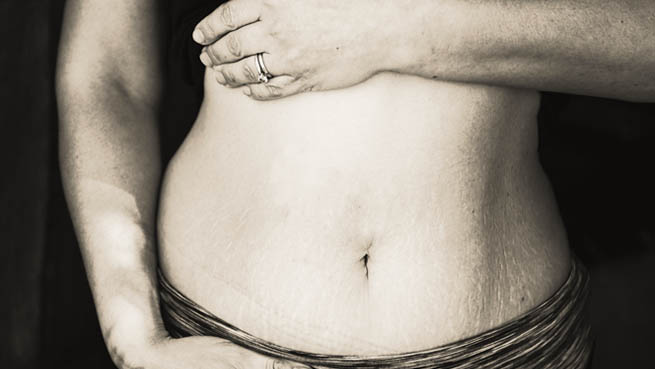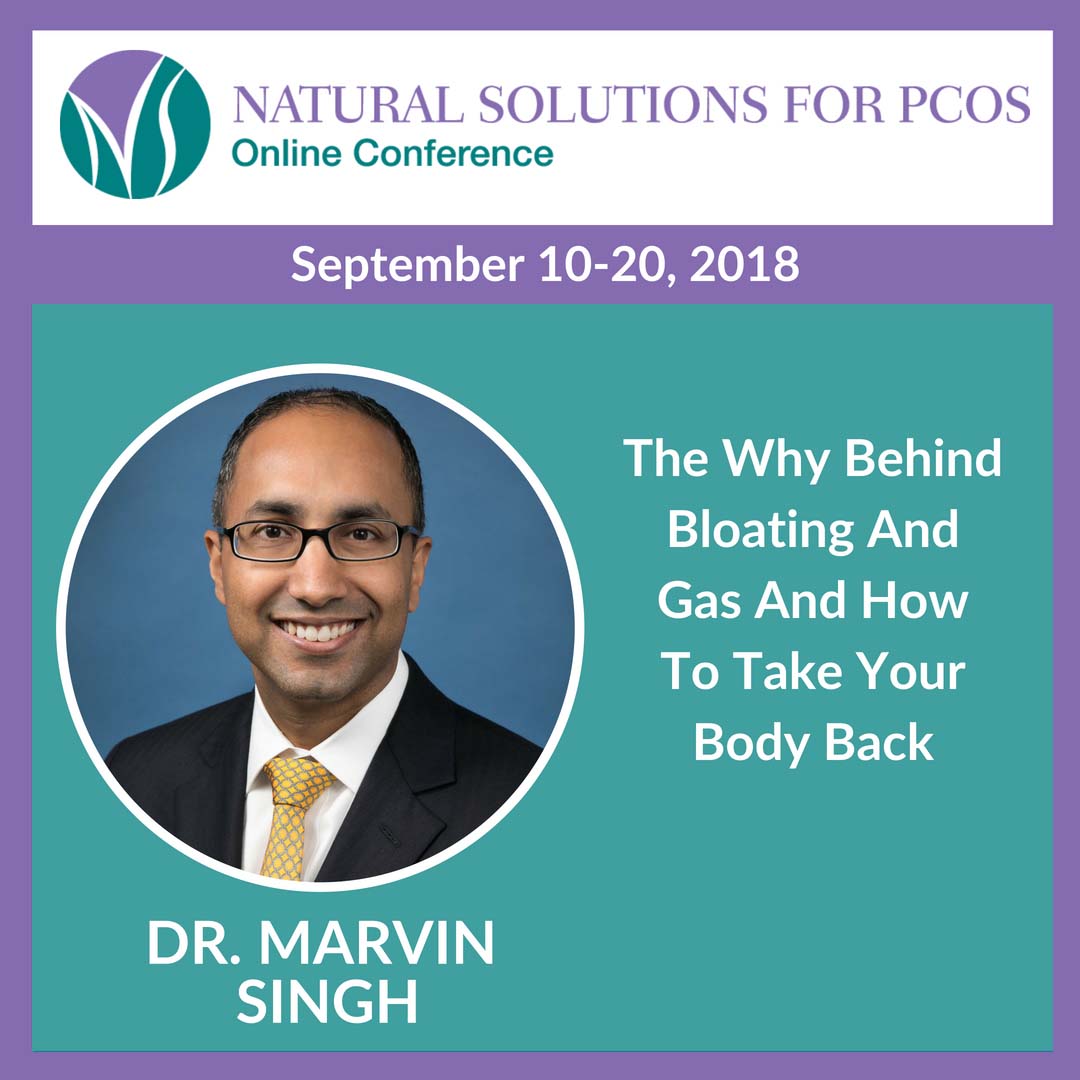
By Marvin Singh
So, what is gut health? Is this just another fad? It seems like everywhere you turn there is some advertisement, article, or post about gut health (this one included!). Many of you may be wondering what the big deal is. Should you even be interested? The answer is an “absolutely, yes!”
Join the Natural Solutions for PCOS Online Conference to hear Marvin’s interview!
Let’s first start off by talking about the gut. What is the gut? Well, the gut refers to our digestive tract. The second you put something in your mouth the process of digestion starts from the enzymes in your mouth to the chewing with your teeth. Digestion progresses as the food is transferred into your food pipe (aka, the esophagus) and then down into your stomach. From there, it will travel through the small intestines (or small bowel) and finally end up in the colon (or large bowel). The final product that is expelled from our rectum is what we fondly refer to as poop. This is an oversimplified explanation of how things travel down; there are a lot of things that happen in between. However, I wanted to at least give everyone an idea of what the different parts of the gut actually are. Did you know that if you were to remove your digestive tract from your body and lay it down on the ground it would be about as long as a doubles tennis court? That’s a lot of ground to cover!
One of the reasons why it is important to be concerned about our gut health (or the health of our digestive tract) is because it is home to one of the most powerful entities in our bodies—the gut microbiome. The microbiome refers to the approximately 100 trillion bacteria, viruses, and fungi that exist together in our digestive tracts. These little bugs are important because they do a whole host of things for us. They can also make us sick if things get out of balance. Protecting the gut microbiome and helping to grow a resilient ecosystem can go a long way in the management of chronic disease.
In those with obesity and fatty liver, we know that there are changes in the inflammation levels in our intestines and changes in gut permeability (or leaky gut). Along with these changes come alterations in the gut microbiome
- There is also a suggestion that the gut microbiome can affect kidney function and play a role in acute kidney injury
- Not only does the gut microbiome play a role in metabolism and immunity, it also can influence your risk for heart disease
- The body of knowledge that we are accumulating regarding the gut microbiome is growing at a rapid pace and we are learning about associations with almost every medical condition, including diabetes, Parkinson’s Disease, Alzheimer’s disease, autism, ADHD, stress, depression, among many others.
Join the Natural Solutions for PCOS Online Conference to hear Marvin’s interview!
Just doing a PubMed (medical literature) search for the “gut microbiome” brings almost 11,000 articles.
We are still trying to figure out how it all works and which microorganisms do what but one of the clear messages is that a diverse and rich microbiome are key. It’s kind of like this….if you are the CEO of a major company, what kind of work force would you want? Would you want a bunch of people who have the same skill set, same educational background, identical cultural backgrounds, and same ideas? Or would you want a bunch of highly talented people that come from a variety of backgrounds, from different schools, different countries, and have their own unique personalities and ideas? I think the answer is obvious, right? So, as the CEO of your body (and your gut microbiome), it is our jobs to make sure that we have a diverse microbiome. This is another way of looking at the term “gut health.”
Here are a few basic tips on building a diverse, resilient gut microbiome:
- Eat a variety of (preferably organic, non-GMO) colorful vegetables and fruits, while avoiding processed foods, unhealthy trans-fats, fast foods, and excess sugar.
- Avoid toxins. This includes food toxins, environmental toxins (as best as possible), certain medications (if possible), tobacco, and excessive alcohol.
- Exercise. Movement on a regular daily basis is good for your gut too!
- Sleep. Shoot for 7 hours of sleep per night.
- Reduce stress. This is a big one. There is a direct mind-gut connection and stress can definitely weigh heavy on the gut and the gut microbiome.
- Social interconnections. Yes, this is definitely part of the program too. Our social connections, friendships, and relationships play a large role in our overall health and how we do, especially when we are sick. This is one of the keys to living a long healthy life. Our gut bugs can definitely feel the love!
I hope this helps clear up some of the confusion about gut health and what it is. At the end of the day, we should remember that gut health is important. It may actually be one of the most important parts of our bodies. We should be responsible CEOs to our gut microbiomes. In turn, they will help us be strong, healthy, and successful in many different ways!
Join the Natural Solutions for PCOS Online Conference right now, where you can hear Marvin’s interview!
Next Steps
- Take the PCOS Quiz! Get your score and assess your hormone health risks.
- Join our Facebook Sisterhood Group Pose your questions to this group of like-minded women. Get the answers to your questions and the support you need.
- Checkout the Hormone Reset. Guided Practices to eliminate anxiety, lose weight and boost energy.
We are committed to helping women reverse their symptoms of hormone imbalance – a major cause of excess weight gain, adult acne, unwanted facial hair, depression, anxiety, and heartbreaking female infertility.
©Insulite Health empowers women with hormone imbalance to transform their lives through a process of healing with the Natural Hormone Solution –a complete solution for helping women reverse the symptoms hormone imbalance..

